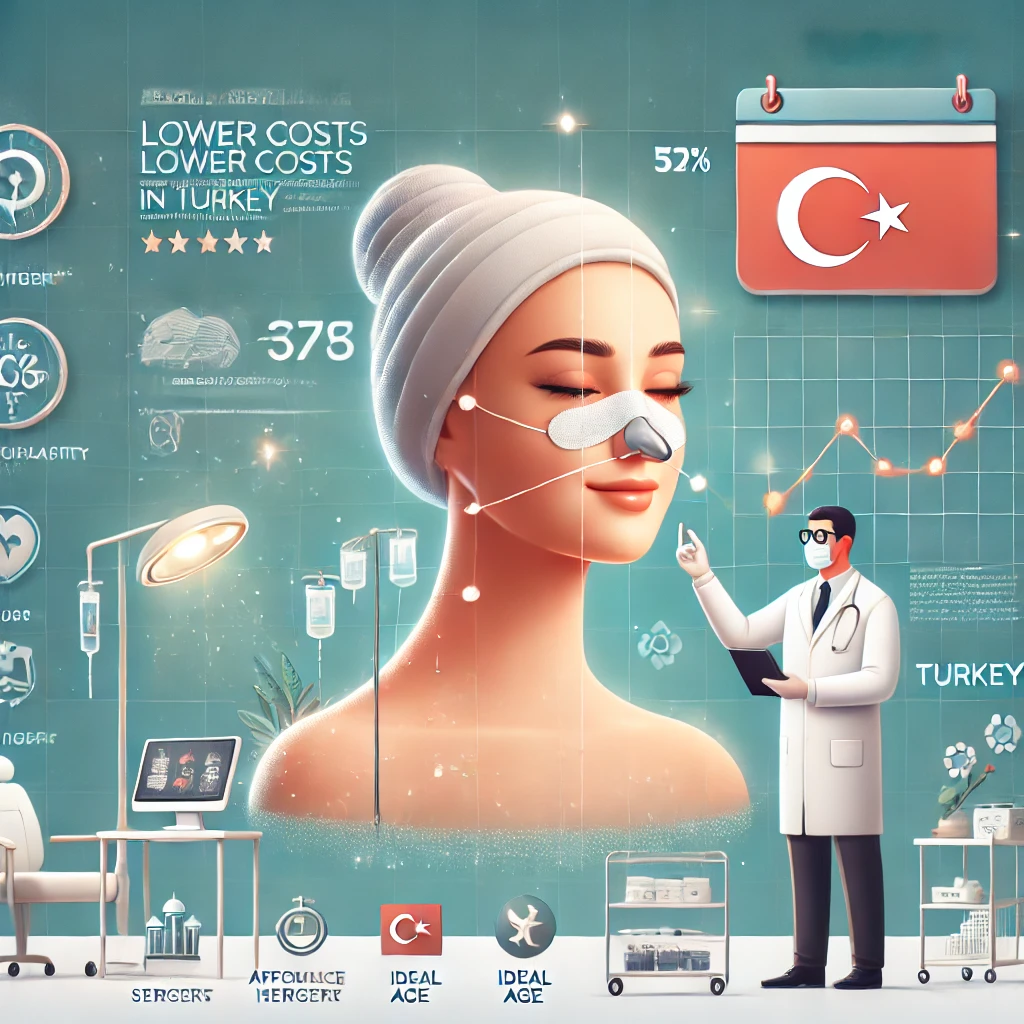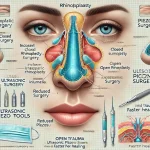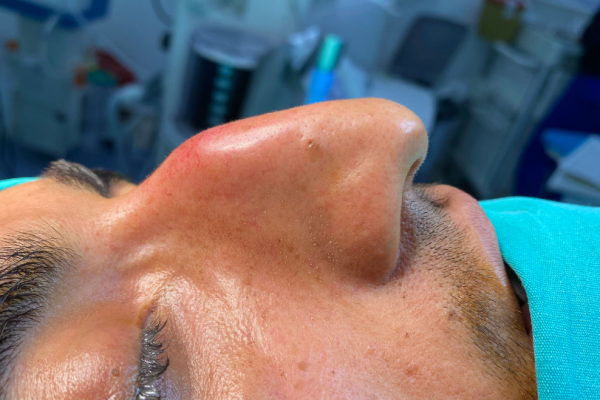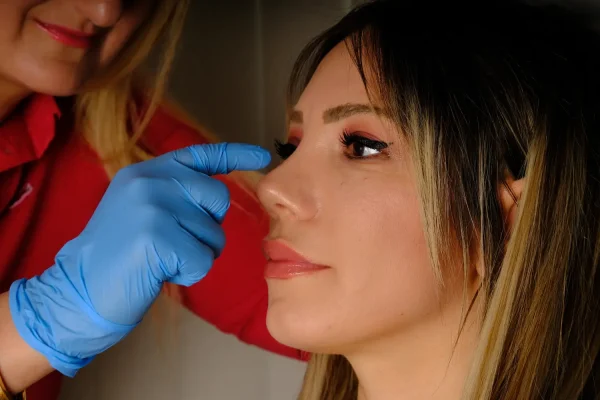Nose Aesthetics Conditions
Nose Aesthetics (Rhinoplasty) Conditions
As we have described in many of our articles, rhinoplasty is a surgical procedure known as a nose aesthetic surgery. This surgery is performed to change the shape, size, or proportion of the nose. Rhinoplasty can be chosen for both aesthetic reasons and to address functional issues. Rhinoplasty is performed to correct congenital or acquired nasal deformities, to resolve breathing problems such as nasal congestion, or to repair damage caused by trauma. Rhinoplasty performed for aesthetic concerns can increase a person’s self-confidence and improve quality of life.
Factors Influencing the Best Timing for Rhinoplasty
Age and Development
Adolescence
The most suitable age for rhinoplasty is generally determined towards the end of the adolescent period, when the nose is fully developed. Nasal development is completed at around 15-16 years in girls and 17-18 years in boys. These ages determine the ideal timing for rhinoplasty, as a fully matured nasal structure ensures more permanent and healthy post-surgery results.
Adulthood
Adulthood is a common time frame for rhinoplasty. In adults, rhinoplasty may be preferred to correct nasal structure changes due to aesthetic concerns or the aging process. Additionally, the post-surgery recovery process is usually faster and smoother in adults.
Season and Climate
Undergoing rhinoplasty in the summer has advantages, especially in tourist areas like Antalya, where the summer holiday period can provide more time to rest and recover after surgery. The winter months are generally a more preferred time for rhinoplasty. Cold weather can help reduce swelling and bruising faster. Additionally, it is easier to protect sensitive skin post-surgery during the winter due to less sun exposure. However, attention should be paid to seasonal illnesses such as colds and flu.
Health Status and General Health
Importance of Your General Health Status
It is very important that your general health status is good before rhinoplasty. Pre-surgery health checks and tests are necessary to determine if you have any health issues. Especially chronic diseases or immune system-related problems can increase the risks of surgery and prolong the recovery process.
Chronic Diseases and Rhinoplasty
Chronic diseases can affect rhinoplasty surgery. Conditions such as diabetes, heart diseases, or immune system problems can increase the risk of post-surgery complications. Therefore, it is important for individuals considering rhinoplasty to have a detailed health evaluation with their doctors to determine if the surgery is safe.
Pre-Surgery Preparation
Consultation and Initial Examination
Choosing an Expert
One of the most important steps before rhinoplasty surgery is choosing an experienced and reliable surgeon. The choice of specialist can directly impact the success of the surgery. Learning about your surgeon’s past successes, patient reviews, and portfolio can help you make the right choice. It is also very important that the surgeon is specialized in rhinoplasty. In this regard, Assoc. Prof. Sema Koç, with 22 years of experience and over 3500 rhinoplasty surgeries, is among the most experienced doctors. You can find numerous surgery photos on her Instagram page.
Initial Examination and Evaluation
During the initial examination, Assoc. Prof. Sema Koç will evaluate your nasal structure, skin type, general health status, and airways inside the nose using special cameras. At this stage, detailed information about how the surgery will be performed, possible outcomes, and risks will be provided. Additionally, your facial structure will be analyzed to determine if your expectations are realistic and if the surgery is suitable for you.
Psychological Preparation
Managing Your Expectations
It is very important to manage your expectations and be realistic before rhinoplasty surgery. The results of the surgery can vary from person to person, and perfect results cannot always be guaranteed. Therefore, it is important to have open communication with your surgeon before surgery to clarify your expectations and possible outcomes.
Pre-Surgery Psychological Support
Aesthetic surgeries like rhinoplasty can be emotionally and psychologically challenging. Receiving psychological support before surgery can help you go through the surgery process more comfortably and stress-free. Meeting with a psychologist or counselor can reduce your surgery-related anxieties and contribute to a more positive experience.
Post-Surgery Recovery Process
How Long Does the Recovery Process Take?
The recovery process after rhinoplasty surgery can vary from person to person. Generally, swelling and bruising are at their peak during the first week, and it is very important to rest during this period. Most patients can return to their daily activities at the end of the first week. The full recovery process usually takes between 6 months to 1 year, during which the nasal shape and results become more pronounced.
Things to Consider After Surgery
First Week
The first week after surgery is the most critical period of the recovery process. During this period, it is recommended to sleep with your head elevated to reduce swelling and bruising. Additionally, nasal tampons and splints help the recovery process and are usually removed after the 5th or 6th day. You should avoid heavy physical activities and protect your nose from any impacts during this period.
First Month
Swelling significantly reduces during the first month after surgery, and the nasal shape starts to become more pronounced. However, the complete healing of the internal tissues and bone structures of the nose can take longer. During this period, it is important to carefully follow the instructions given by your surgeon. Especially, protecting the nose from trauma and avoiding heavy exercises is crucial.
Tips to Speed Up the Recovery Process
Nutrition and Hydration
A healthy diet and adequate water consumption can speed up the recovery process. Foods rich in protein, vitamins, and minerals provide the nutrients your body needs during the healing process. Additionally, drinking plenty of water helps remove toxins from the body and aids cell regeneration.
Physical Activity and Rest
It is very important to avoid heavy physical activities and get plenty of rest during the first few weeks after surgery. Light walks can contribute to the recovery process by increasing blood circulation. However, you should avoid heavy exercises and sports activities for at least 4-6 weeks. Resting helps your body focus on the healing process.
For more information about nose aesthetics and to schedule a consultation with Assoc. Prof. Dr. Sema Koç, you can contact our clinic.
Other Languages
Author





